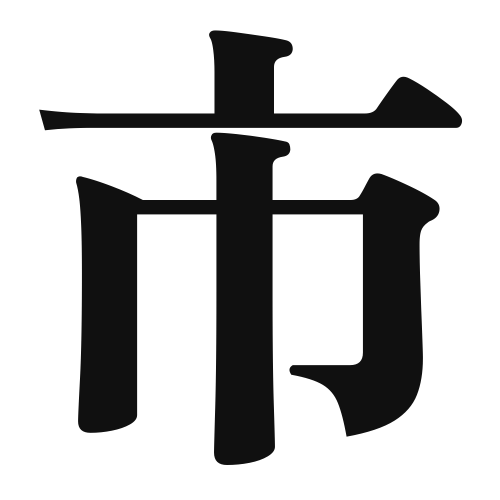1. Overview of Meaning
The kanji “市” (shi) means “city” or “market.” It represents a place where people gather for trade and commerce, reflecting urban life and community interaction.
2. Formation and Radical
The kanji “市” is a pictogram, originally depicting a market or a place where goods are exchanged. It is composed of the radical 土 (tsuchi), which means “earth” or “ground,” indicating that markets are often held on the ground.
3. Examples of Usage
Common words and phrases that include “市” are:
- 市役所 (shiyakusho) – city hall
- 市場 (ichiba) – market
- 市民 (shimin) – citizen
Example sentence in daily conversation:
「私は市役所に行きます。」 (Watashi wa shiyakusho ni ikimasu.) – “I will go to the city hall.”
4. Synonyms and Antonyms
Similar kanji with related meanings include:
- 町 (machi) – town; it refers to a smaller urban area compared to “市.”
- 村 (mura) – village; it indicates a rural area, smaller than a town.
Antonyms include:
- 田 (ta) – rice field; it represents agricultural land, contrasting with urban areas.
5. Cultural and Historical Background
The kanji “市” is deeply connected to Japanese culture, as markets have historically been central to community life and trade. Various proverbs and idioms reflect this significance, such as:
- 市井の人 (shiei no hito) – “a common person,” referring to ordinary citizens living in the city.
Markets in Japan, known as “ichiba,” have been vital for local economies and social interactions, showcasing the importance of community in Japanese society.
